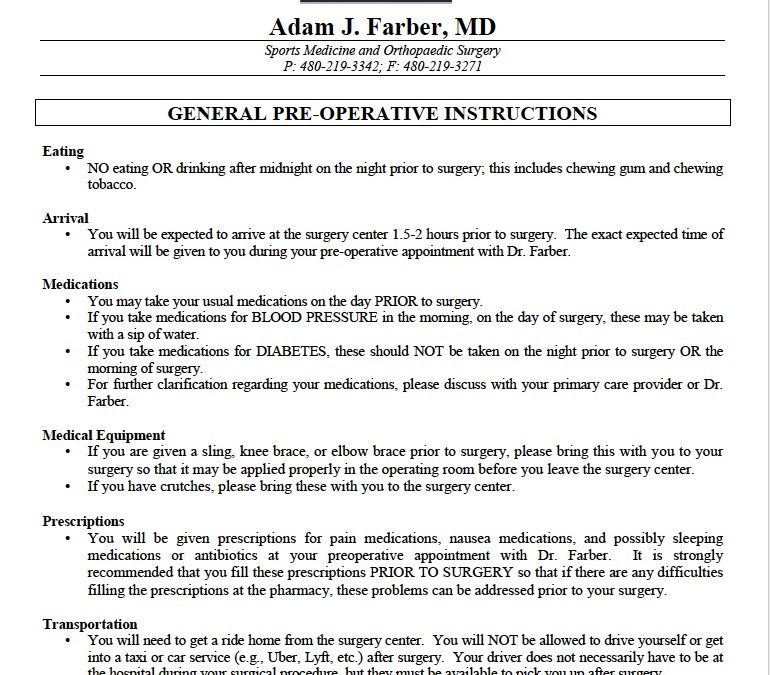So, when it comes to surgery, it’s important to know how much time to budget for getting to the clinic. Arriving early is always a good idea, as it allows you to fill out any necessary paperwork and prepare yourself mentally for the procedure. Typically, most clinics recommend arriving at least an hour before your scheduled surgery time to ensure everything goes smoothly. This extra time gives you the opportunity to ask any last-minute questions and ease any nerves you may have. Ultimately, arriving early not only helps the clinic stay on schedule but also helps you feel more calm and prepared for your surgery. How soon before the surgery should I arrive at the clinic?
So, you’ve got a surgery scheduled and you’re wondering how early you need to show up at the clinic. Don’t worry, I’ve got you covered. Let’s break it down step by step to make sure you’re well-prepared for your big day.
Preparing for the Surgery
First things first, let’s talk about what you need to do to prepare for the surgery. Make sure you follow any pre-operative instructions given to you by your healthcare provider. This may include fasting before the surgery, stopping certain medications, or completing any necessary tests or paperwork.
Follow Pre-Operative Instructions Carefully
It’s important to follow all pre-operative instructions given to you by your healthcare provider. This will help ensure that the surgery goes smoothly and reduces the risk of complications. If you have any questions about the instructions, don’t hesitate to reach out to your healthcare provider for clarification.
Arrange Transportation
On the day of your surgery, you may not be in the best shape to drive yourself home after the procedure. Make sure you arrange for someone to drive you to and from the clinic on the day of surgery. This will ensure your safety and comfort, as well as comply with any post-operative instructions given to you by your healthcare provider.
Day of Surgery
Now, let’s get into the details of what you can expect on the day of your surgery. Knowing what to expect can help ease any anxiety or nerves you may be feeling about the procedure.
Arrival Time
Most clinics will ask you to arrive at least 1-2 hours before your scheduled surgery time. This allows time for you to complete any necessary paperwork, change into a hospital gown, and meet with the surgical team before the procedure.
Check-In Process
When you arrive at the clinic on the day of your surgery, you will need to check in at the front desk. They will verify your identity and insurance information, collect any necessary co-pays or payments, and provide you with any additional paperwork to fill out.
Pre-Operative Preparation
Once you have checked in, you will be taken to a pre-operative area where you will meet with nurses and other members of the surgical team. They will review your medical history, check your vital signs, and start an IV if necessary. This is also a good time to ask any last-minute questions you may have about the procedure.
Surgery Timing
Now, let’s talk about the actual timing of your surgery. The start time of your surgery can vary depending on various factors, including the complexity of the procedure, the availability of the surgical team, and any unexpected delays that may arise throughout the day.
Operating Room Schedule
Clinics typically have a set schedule for surgeries throughout the day. Your surgery will be assigned a specific time slot based on this schedule. While the clinic will do their best to keep to the schedule, it’s important to remember that unexpected delays can sometimes occur.
Anesthesia Prep
Before your surgery, you will meet with the anesthesiologist who will be responsible for administering anesthesia during the procedure. They will discuss the type of anesthesia to be used, answer any questions you may have, and ensure that you are comfortable before the surgery.
Surgery Duration
The actual duration of your surgery can vary depending on the type of procedure being performed. Some surgeries may only take a few minutes, while others can last several hours. Your surgeon will be able to give you a more accurate estimate of how long your surgery is expected to take.
Post-Operative Care
After your surgery is complete, you will be taken to a recovery area where you will be monitored closely by nurses and other members of the surgical team. It’s important to follow all post-operative instructions given to you by your healthcare provider to ensure a smooth recovery.
Recovery Room Stay
After your surgery, you will spend some time in the recovery room until you have fully woken up from anesthesia and your vital signs are stable. This is a critical period where your medical team will closely monitor your condition and make sure you are comfortable as you start to regain consciousness.
Discharge Instructions
Before you are discharged from the clinic, your healthcare provider will give you detailed instructions on how to care for yourself at home. This may include information on wound care, medication management, activity restrictions, and when to follow up with your healthcare provider for a post-operative visit.
Conclusion
In conclusion, arriving at the clinic on time for your surgery is crucial to ensure a smooth and stress-free experience. Make sure you follow all pre-operative instructions, arrange for transportation on the day of surgery, and arrive at least 1-2 hours before your scheduled procedure time. Remember, your healthcare team is there to support you every step of the way. You’ve got this!

